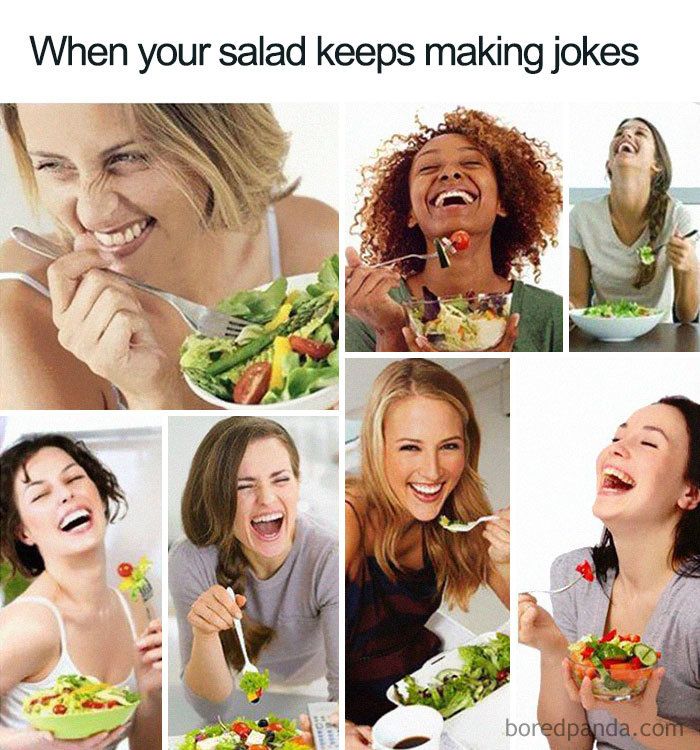Does eating more frequently help with weight loss?
Aug 12, 2025
I shared a post on LinkedIn last week on some of the most common health and fitness myths that have long plagued the planet.
One of them was the idea that eating every 2–3 hours boosted your metabolism.
The thinking was that eating small meals more frequently somehow turned your body into a fat burning machine.
A trend too good for some to miss out on, but...
What does the science say?
Well let's find out ⤵️

I had to share this 😂
Does eating more frequently help with weight loss?
This is one of the original fitness myths.
It’s up there with some of the OG’s such as:
- Too much protein damages your kidneys
- You can be healthy with 6 hrs of sleep
- Carbs make fat loss impossible
It's been floating around gyms, magazines, and early YouTube fitness channels for years.
The idea is simple...
Eat often, keep “stoking the fire,” and your metabolism will hum along at maximum speed.
Sounds plausible, right?
But the truth is far from that.
See, your body burns calories digesting food, something referred to as the thermic effect of food (TEF),
But this is where the myth gets busted ⤵️
TEF is proportional to the total calories you eat, not how you split them up.
In Layman's terms, it's the total amount of food you eat that matters, not when you eat them.
If your daily calories are the same, TEF stays the same whether you eat three big meals or six small ones.
A classic study by Burke et al. (1989) titled "Thermic effect of food and frequencies of repetition" showed this to be true.
They looked at what happens to the thermic effect of food (TEF), the energy your body uses to digest and process food, when the same total calories are eaten in different ways.
- In one condition, participants ate a single large meal.
- In another, they split those exact same calories into multiple smaller meals.
The result?
→ TEF was virtually identical.
Why? Because as I said above, TEF is proportional to the total amount of energy you consume, NOT how you divide it up throughout your day.
Whether you eat three big meals or six small ones, if calories are the same, TEF will be too.
In other words, meal frequency doesn’t “stoke the metabolism fire”, rather total intake is what really counts.
So, if there’s no metabolism boost from frequent meals…
Could eating more frequently still help you lose weight in other ways?
Well, a 2024 trial put this to the test in a real-world setting.
Study title: Meal Frequency Does Not Affect Weight Loss in Overweight/Obese Women but Affects the Body Composition: A Randomized Controlled Trial. (Köroğlu & Öztürk, (2024))
Who: 40 women aged 19–64, all aiming for weight loss under the guidance of a dietitian.
What they did:
- Group 1: 3 meals per day
- Group 2: 3 meals + 3 snacks per day
- Both cut ~500 calories/day from their normal intake
- Plan lasted 12 weeks
- Calories and macronutrients were matched between groups
How they tracked progress:
- Weekly body composition checks via bioelectrical impedance
- Food logs (3 days/week)
- Physical activity logs (24-hour format)
The results:
After 12 weeks, the following results came from the trial:
- Weight loss: Virtually identical between groups. There was no meaningful difference on the scales.
- Fat loss: The snack group lost slightly more total body fat (-18.8% vs. -14.9%) and body fat percentage (-10.8% vs. -7.7%).
- Lean mass: The snack group held onto (and slightly improved) fat-free mass percentage more than the 3-meal group (+7.65% vs. +5.04%).
Same calories. Same protein. Same time frame.
Yet the more frequent eating pattern nudged body composition in a slightly better direction.
But, before we get too carried away, let's pump the breaks because I'm sounding like a walking contradiction here 😂
Before you start setting six alarms a day to eat… a few caveats:
- Measurement method: Bioelectrical impedance is convenient but not the gold standard. Hydration and timing can throw readings off.
- Self-reported food logs: These are always prone to error and people can easily under or overestimate their calorie intake.
- Small sample size: 20 per group is a very small sample size, considering some studies can include thousands of people.
- Women only: Can’t say if men would see the same pattern.
Also, this is one study, and you can't hang your coattails on one solitary study.
The broader research on meal frequency and fat loss is mixed.
Some trials show a small benefit to eating more often, others lean toward fewer meals, and many find no difference at all when calories and protein are matched.
To say the evidence is inconclusive would be an understatement.
So what could be the possible reasons behind the snack group seeing more fat loss?
Well, even without a 'metabolic boost', eating more often could:
- Spread protein intake more evenly, improving muscle protein synthesis across the day. The more muscle we have, the more calories we burn.
- Help some people control hunger and avoid big calorie swings
- Prevent late-night overeating after long gaps without food
- Support energy levels if you train or work long hours
But again, these benefits aren’t universal...
For some, more frequent eating just creates more opportunities to overeat.
Key takeaways
- Eating every 2–3 hours doesn’t speed up your metabolism.
- If calories and protein are the same, meal frequency makes little difference to weight loss for most people.
- This trial found a slight edge in fat loss and lean mass retention when eating more often, but the difference was small, and lacking true evidence.
- Your best meal frequency is the one you can stick to consistently without blowing your calorie target. This is the real key!
My advice to you is quite simple, if more frequent eating helps you:
- Hit your protein target more easily
- Stay full and energised
- Perform better in the gym
…then it’s worth trying.
But if you prefer fewer meals and that works for your lifestyle, stick with it.
You’re not missing out on some magical fat-burning effect.
In other words, pick the pattern that makes it easiest to eat well, train hard, and repeat it long enough to see results...
Without stressing you out!
As always, my doors are always open if you have any questions.
I personally reply to every single email I get, so I look forward to hearing from you
Right, I hope that's been helpful.
Quote for the day
"Fail early. Fail often, but always fail forward."
- John C. Maxwell




